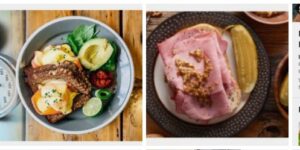
By Aminat Umar
Often, what causes high blood pressure is mysterious. It’s attributed to a mixture of family history, age, stress levels, lifestyle factors, and health conditions. What’s not so uncertain? The treatments for this common condition. If you’re diagnosed with hypertension, there are established methods to decrease your numbers. Avoiding certain foods and incorporating others can help you control your blood pressure.
Hypertension risk factors include smoking and alcohol use, an unhealthy diet that is high in sodium, excessive caffeine, obesity, heavy metal poisoning, certain birth control pills, and emotional stress, explains Carrie Lam, MD, co-founder and medical director of LAM Clinic in Tustin, California.
If you have hypertension, your healthcare provider may suggest lifestyle changes, such as following a healthy diet with a reduced salt intake and exercising regularly. These adjustments can help lower your blood pressure and can thereby decrease your risk of heart disease and other related health issues. True hypertension will not normalize with dietary changes and medications will be needed to lower your blood pressure.
What is the DASH diet?
Wondering what to eat to help lower blood pressure? The DASH diet, which stands for Dietary Approaches to Stop Hypertension, is one of the most effective dietary ways to lower your blood pressure. “The DASH diet is low in sodium (less than 2300 mg per day), high in fruits, vegetables and whole grains, and low in foods that are high in saturated fats. [It] has been ranked the healthiest overall diet by a panel of experts from U.S. News and World Reports,” says Jeff Landsman, MD, primary care provider at Mercy Personal Physicians in Lutherville, Maryland.
“Fish, chicken and vegetable protein (nuts, seeds and legumes) are highlighted as great choices, with an emphasis on the whole grains that provide so many of the unique dietary fibers that we need,” says Julie Miller Jones, Ph.D., emeritus professor of nutrition at St. Catherine University in St. Paul, Minnesota.
This high blood pressure diet, which has been studied for almost 30 years, is proven to both lower blood pressure and reduce the risk of nearly all chronic diseases. “In fact, in a recent meta-analysis that involved over 900,000 subjects, The DASH dietary pattern was associated with a nearly 20% decreased risk of cardiovascular disease, coronary heart disease, stroke, and diabetes,” says Jones.
What’s more, many people have success following the DASH eating plan because it contains the foods they’re used to, and it follows familiar eating patterns, which greatly improves their chance of long-term success.
WHAT CAN I EAT TO LOWER MY BLOOD PRESSURE IMMEDIATELY?
Are there foods that lower blood pressure quickly?
Research suggests that eating nitrate-rich vegetables can help lower blood pressure for up to 24 hours. This lowering may not bring blood pressure into the normal range. It is important to check your blood pressures at home, and at the grocery store or pharmacy with the blood pressure goal of less than 135/85. Nitrate-rich vegetables should not be confused with nitrate-rich foods laden with preservatives.
When most people hear nitrate, the first thing they think of is processed meat because artificial nitrate is added to bacon, hot dogs, and salami for preservation. But preserved meats are actually foods that can cause high blood pressure.“When taken from animal sources, nitrate is converted into carcinogenic nitrosamine in your body, which is extremely harmful to your health,” Dr. Lam says. Nitrates from vegetables, fruits, and grains—on the other hand—are converted to nitric oxide in your body. Nitric oxide helps relax blood vessels and improves blood flow.
Research indicates that dehydration can impair blood vessel function, so drinking plenty of water daily to stay hydrated is a good rule of thumb to reduce blood pressure.
14 FOODS TO EAT
While there is no single food that you can eat to lower your blood pressure, a healthy eating plan that incorporates all of the necessary components can help. Good foods for high blood pressure include fiber from grains, fruits, vegetables and legumes, says Jones.
Whole grains provide minerals like magnesium, which works with the calcium in low-fat dairy to improve your health. Fruits and vegetables provide potassium. Potassium reduces the effect of sodium and decreases the tension in your blood vessels. These are all important to maintain good health and maximize blood pressure control.
The following potassium-rich foods promoted by the American Heart Association are among the best foods to lower blood pressure:
Apricots
Avocados
Melons (cantaloupe or honeydew)
Fat-free or low-fat dairy products
Spinach and greens
Fish (tuna and halibut)
Legumes
Molasses
Mushrooms
Oranges/orange juice
Potatoes
Prunes/prune juice
Raisins and dates
Tomatoes
“In some studies, flaxseed has been shown to lower blood pressure,” says Dr. Landsman. “Two tablespoons of ground flaxseed a day can actually lower blood pressure similarly to some common blood pressure medications.”
8 FOODS TO AVOID
Highly processed foods, saturated fats, salt, fried food, and excessive alcohol intake should be avoided. These can elevate blood pressure, according to Dr. Landsman.
Exceeding your recommended daily calorie intake is also bad for your blood pressure. Too many calories causes weight gain. “Excess weight elevates blood pressure,” Jones says.
Diets high in sodium, which is found in many smoked or cured foods and sauces, can also raise blood pressure. “A particularly bad combination for blood pressures are diets high in salt but low in potassium from fruits and vegetables, low in other needed minerals such as calcium from dairy products, and [low in] magnesium from whole grains and vegetables,” says Jones.
These foods should be avoided as they may raise your blood pressure:
Processed meats such as bacon and hot dogs
Canned foods with preservatives
High-sodium foods such as pickles and potato chips
Fried foods such as french fries and chicken strips
Fatty meats, especially red meat
Vegetable oil and margarine, which are high in trans fat
Table salt
Grapefruit*
*Note: Grapefruit and grapefruit juice can interact negatively with certain blood pressure medications. Consult a healthcare provider or dietitian about possible food-drug interactions before changing your diet.
Overall, to improve your heart health, eat a low-sodium diet including lean meat and less added sugars. Read food labels to help reduce your sodium intake and avoid foods with high sugar content, like certain salad dressings and fruit juices.









